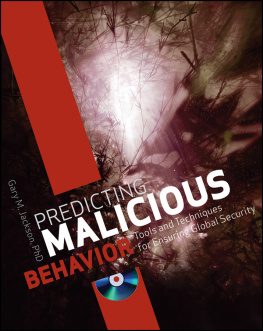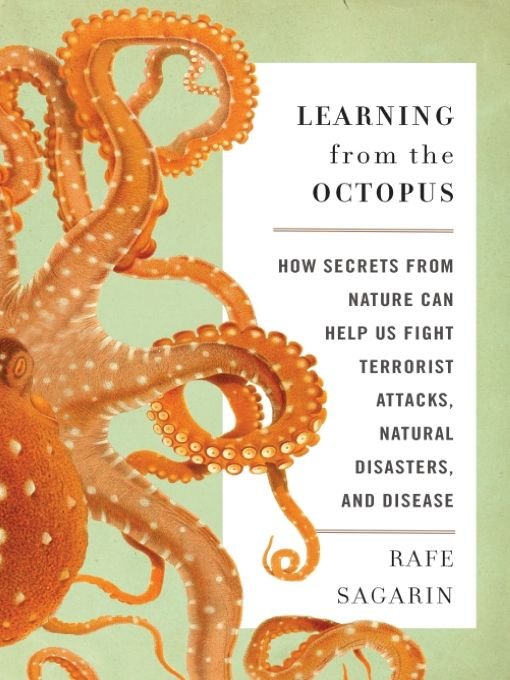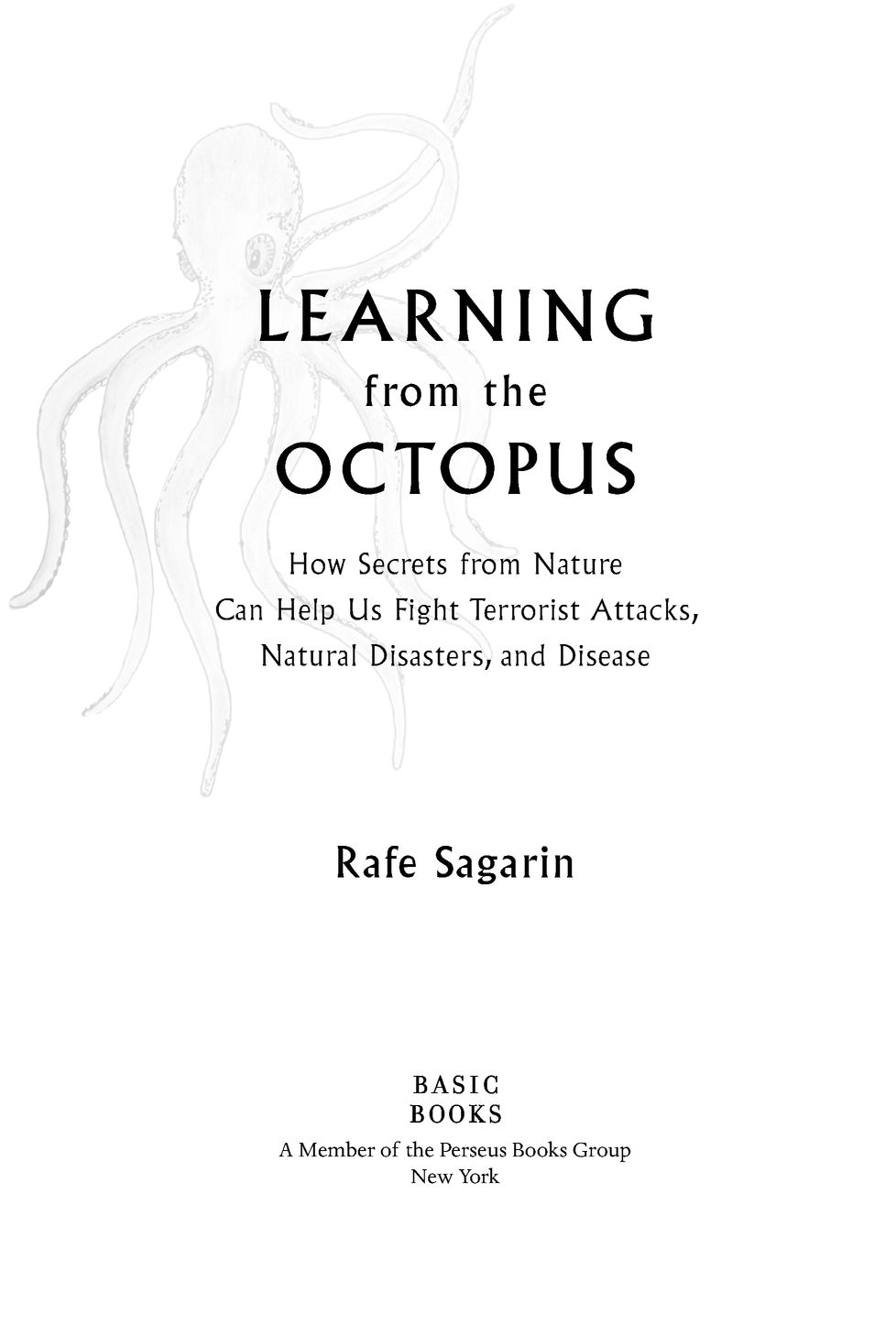Table of Contents
This book is dedicated to Paula Loyd,
one of the most adaptable human beings I have ever known.
FOREWORD
BIG IDEAS RARELY come from predictable sources. This is particularly true in the realm of national security.
When the U.S. national security state was created in 1947, our government made a large standing military permanent, created an international clandestine intelligence capability that continues to grow, and established a priesthood of national security experts. Like all priesthoods throughout human history, the national security priesthood was open only to those who possessed vital secrets.
Secrecy has two functions: it establishes a fraternity of those on the inside, and it locks out those on the outside. Thus, if you are not a member of the fraternity or the priesthood, you are not welcomed into national security deliberations. Over time, closed systems produce fewer and fewer innovations, because closed systems, by definition, are based on certain increasingly unchallengeable fundamental principles.
The national security priesthood participates in established organizations and communicates through established publications such as Foreign Affairs. Some time ago a prominent academic reviewing stale foreign policy books in the New York Times lamented the absence of creative thinking in foreign policy circles. Predictably, she had defined those circles as Boston, New York, and Washington, in part perhaps because she taught at a leading Ivy League university.
There is not one chance in a thousand that anyone within that narrow (in every sense of the word) priesthood would have thought to apply elemental principles of biology to a fresh understanding of conflict in the new age of the twenty-first century as Rafe Sagarin has done in this innovative book. He is, praise be, not a member of the established national security priesthood, at least for the time being. But do not be surprised if, in coming months and years, you see ideas contained in Learning from the Octopus sprouting upwith or without attributionthat are premised on principles of adaptability and organic thinking.
Combining genius and common sense, Sagarin sees in the tide pools of Monterey, California, living organisms with much to teach us about twenty-first-century conflict. His timing is impeccable. For we are departing from a three-and-a-half-century period following the Peace of Westphalia in 1647 when the nation-state defined and conducted warfare. That warfare involved great uniformed national armies meeting in the field, exchanging men and materiel, until a white flag was raised by one side and victory was declared by the other. For, during this period, the nation-state possessed a monopoly on violence granted by the bargain between the state (government) and the nation (the people) that the state would guarantee the security of the nation if the people would declare their loyalty to the state.
Beginning in Vietnam, then into Afghanistan (first for the Soviets, and now for us), and into bitter days in Iraq, things began to change. Combatants didnt wear uniforms. They carried neither banner nor flag. They attacked civilian targets, in violation of the scripted rules of war contained in the various Geneva Conventions. And they behaved more like eleventh-century assassins than honorable regiments so familiar to the twentieth century.
The Westphalian era of conflict ended when the most powerful nation in human history could no longer guarantee the security of its citizens. That was on September 11, 2001.
Because U.S. forces invaded Afghanistan and Iraq expecting to meet more traditional enemies, they were caught off guard. And even as senior officers persisted in trying to conduct traditional military operations in an unconventional, irregular conflict, our troops found themselves forced to improvise. They had been trained and equipped for one kind of conflict and quickly found themselves in another. Massive multi-ton combat vehicles could not negotiate treacherous mountain passes and were overnight sitting ducks for IEDs (improvised explosive devices). The key word here is improvised.
There has been, in fact, what had been called, in theory, a revolution in military affairs. But contrary to those in the national security priesthood who invented this phrase, the revolution was not in highly sophisticated, highly technical, computer-directed super-systems. The revolution was in a return to a gritty house-by-house, virtually hand-to-hand combat in very close quarters. The revolution was also in winning the hearts and minds of tribal members, not in the rather graphic way Lyndon Johnson described, but often with a wad of cash.
The two exceptions to this transformation are in drones and robots. The drones, magically, are controlled halfway around the world. But they still need special forces and on-the-ground intelligence collection to know what primitive dwelling to target. The robots are beginning to prove their worth also at an elementary level in bomb detection. Thus, the vaunted technology revolution in warfare is operating much more at the grassroots combat level than at the geopolitical top-down level so preferred by the national security priesthood.
As Sagarin colorfully points out, there are precedents for this kind of adaptability in the natural world, and weparticularly our military officials and policy makersshould learn and take note. Leaving the stale debate over evolution to backward-looking political figures, Sagarin shows that biological science demonstrates how fauna and some flora adapt to changing conditions not necessarily in a process of seeking perfection. Nature is pragmatic. It has that in common with the best militaries of the past. Creatures change not necessarily to make themselves more beautiful or more exquisite. They do so because it helps them survive in a constantly changing environment.
For those of us who have studied military history and theory for long periods, the application of biological principles to human security is fresh, challenging, and exciting. It is a big idea in a realm where they are especially scarce.
Let us leave it to the father of all strategic thought, Sun Tzu, to make the point: A military force has no constant formation, water has no constant shape: the ability to gain victory by changing and adapting according to the opponent is called genius.
The frustration of the American people with the two long wars in Afghanistan and Iraq is in large part because we now know that our opponents are not going to raise a white flag and sue for peace while we celebrate a great victory and sail triumphantly home. Our massive military superiority, even against the feared Soviet Union, has not brought indigenous rebels to their knees in either country. Something is wrong here.
The lesson is clear: genius, imagination, and adaptation must now replace raw power. The U.S. armed forces in the twenty-first century must adapt to the new/old low-intensity, irregular, unconventional conflict of today and tomorrow. Big army divisions, nuclear carrier task groups, and long-range bomber wings now control the battlefield and dictate the outcome of conflict very much less than in the twentieth century. So long as we borrow a trillion dollars from the Chinese and purchase their products, there is virtually no chance of an all-out nation-state war with them. Both of us are smarter than that and have much more to lose than to gain.











